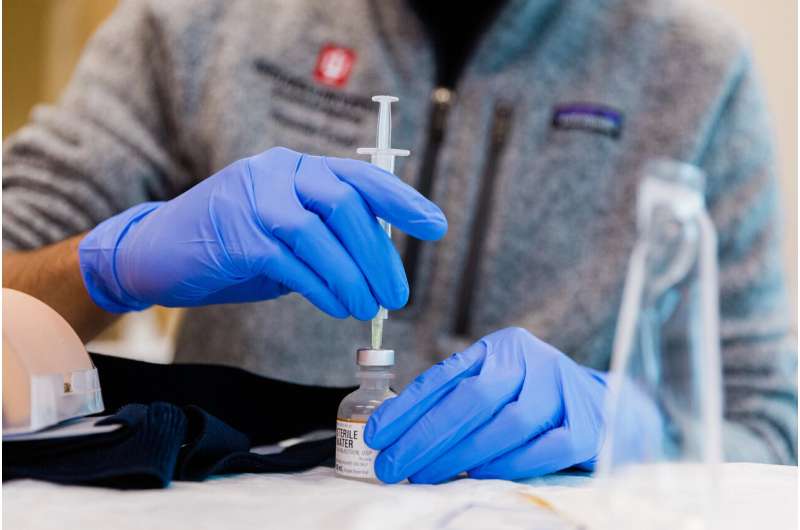ciprofloxacino-posologia para caes

An increasing number of people across the United States are opting to get the COVID-19 vaccine. Still, polls suggest that roughly one-quarter to one-third of the American public remains hesitant to get the vaccine, a serious concern when it comes to reaching herd immunity.
A new project from Indiana University’s Observatory on Social Media, or OSoMe, points to misinformation as a factor affecting COVID-19 vaccine adoption. Working with colleagues from the Polytechnic University of Milan in Italy, the OSoMe team has created a publicly available dashboard called CoVaxxy to explore the relationship between misinformation on Twitter and attitudes about COVID-19 vaccines.
Examples of COVID-19 vaccine misinformation include messages such as cautioning that Microsoft’s Bill Gates is using the vaccines to implant trackable microchips in the body or that the vaccines are killing more people than the virus itself.
John Bryden, executive director of OSoMe, sees CoVaxxy as an important part of OSoMe’s mission to study the impact of online misinformation in the real world.
“Misinformation isn’t just a parlor game; it genuinely impacts people’s lives, including their health choices and health outcomes, benicar and heart burn ” Bryden said. “Sometimes the odd bit of misinformation seen just once is enough to give someone pause, and once the brain has made that link, the person becomes nervous about taking the vaccine.”
Through CoVaxxy’s interactive maps and graphs, dashboard users can visualize correlations between the spread of misinformation and the percentage of a state’s population unwilling to get vaccinated. Users can also compare the rates of vaccine uptake in different states and track which hashtags and news websites are being shared in public conversations about vaccines.
As of early February, the data show Republican-majority states correlate with higher levels of hesitancy about COVID-19 vaccinations. Democratic-majority states mainly show the reverse, with higher levels of willingness to take vaccines. The research team plans ongoing analyzes to understand the role of misinformation in the data as it changes.
“We want to visualize vaccine misinformation so people can see exactly what’s going on over time,” said Matt DeVerna, a Ph.D. student and collaborator on the project who is also a Knight Fellow at OSoMe. “CoVaxxy provides information on how things are developing.”
Source: Read Full Article
